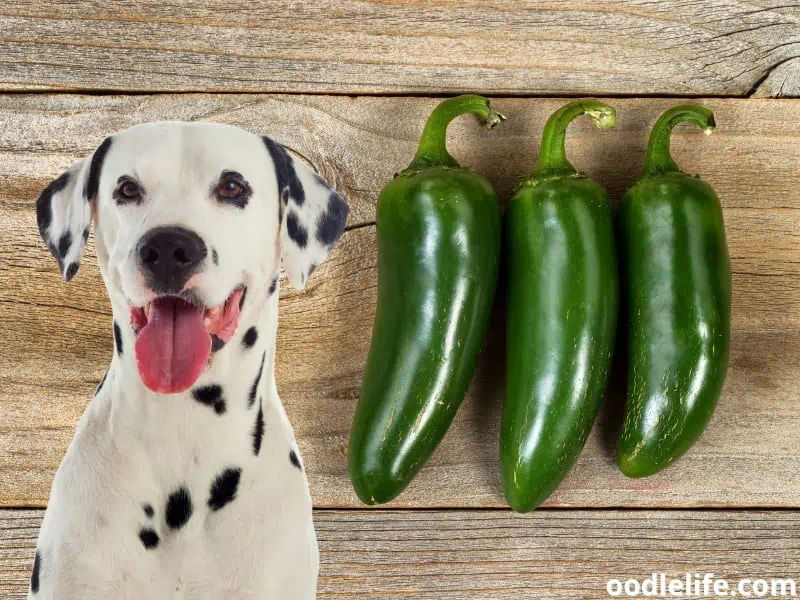Can Dogs Eat Salsa?
If you’ve ever eaten salsa (or anything else, for that matter) in front of your pooch, you know how much he loves to beg. Maybe you’ve enjoyed some salsa in front of Fido and wondered whether you can offer him a little.
So, can dogs eat salsa? No, you absolutely cannot give your canine companion any salsa. Dogs don’t like spicy food, and it can give them diarrhea and an upset tummy.
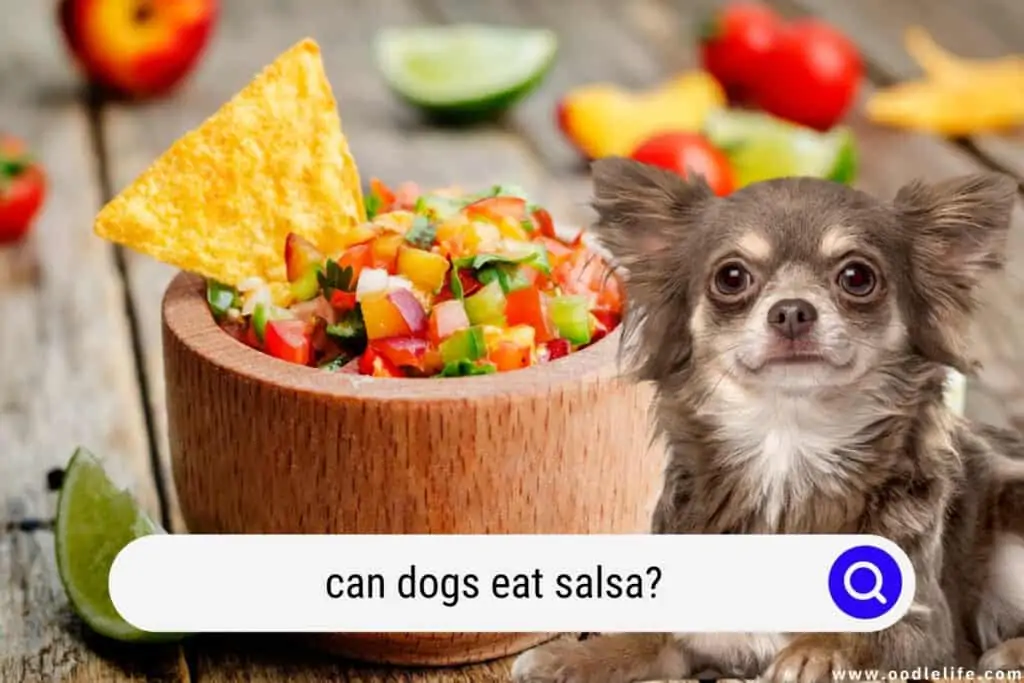
Even more importantly, salsa contains ingredients that dogs cannot eat, including garlic and onion. Salsa can hurt a canine’s red blood cells. Red blood cell damage can lead to anemia.
Salsa Is Dangerous for Dogs
It’s salsa’s ingredients that make it such a hazard for canines. Let’s go through the common salsa ingredients that make it something you need to keep away from your dogs.
Onion
Onion contains a chemical called N-propyl disulfide, and this is toxic to dogs. It attacks canine red blood cells. When a dog’s red blood cells are exposed to N-propyl disulfide, the oxygen molecules in the cells get damaged.
The result? Unfortunately, the affected red blood cells are less able to transport oxygen. Exposure to N-propyl disulfide can also lead to something called hemolysis, which means the destruction of individual red blood cells.
If your dog eats onion and gets red blood cell damage as a result, he could end up with anemia.
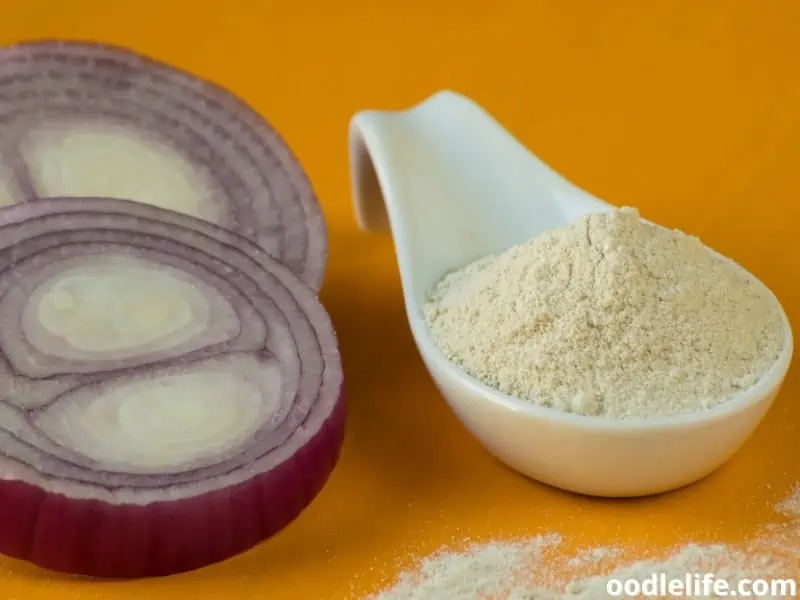
Garlic
Like onion, garlic can damage canine red blood cells. This damage may result in anemia. Additionally, your dog will probably end up with a stomach ache.
Garlic is part of the Allium plant family. As such, it contains compounds toxic to canines. These compounds are thiosulphates and disulfides.
If your pet eats these compounds, he could end up with dangerous conditions such as methemoglobinemia, Heinz body anemia, and hemolytic anemia.
We’ve already talked about how bad onion is for dogs, but garlic is much worse . In other words, a much smaller amount of garlic than onion can make your dog extremely ill.
There are certain symptoms of garlic toxicity you should look out for if your dog has eaten any salsa (or anything else containing garlic). If you notice any of these symptoms, get your pet veterinary attention right away.
- Faster than normal breathing
- Faster than normal heart rate
- Gums have a brownish or “muddy” color, are yellow, or are pale
- Fatigue and lethargy
- Being out of breath
Other potential symptoms include unusually colored urine and stomach pain. These symptoms are signs of the anemia that garlic can cause in canines.
If your dog ate garlic up to one week earlier and starts having diarrhea or vomiting, it’s possible these are signs of anemia.
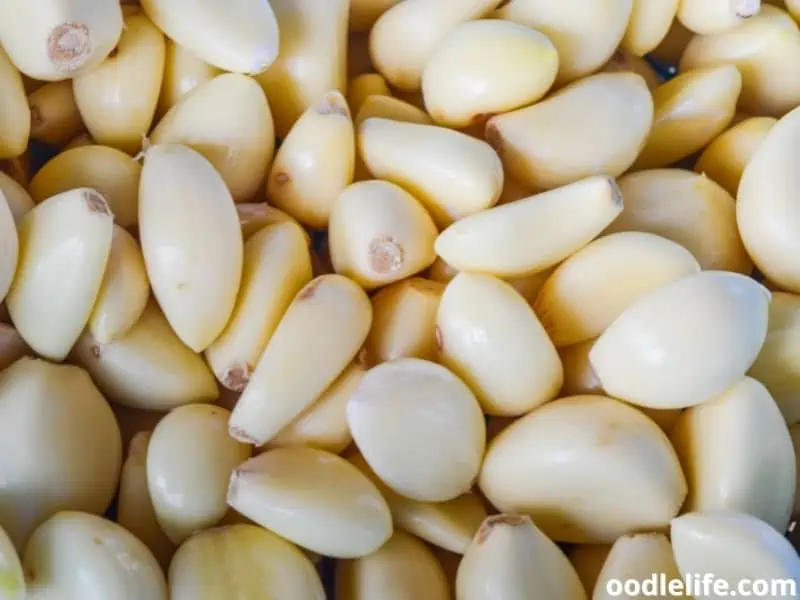
What Should You Do if Your Dog Eats Garlic?
This situation’s severity usually depends on how much garlic your dog has eaten. If the salsa your dog has ingested has a lot of garlic and your dog has eaten a large amount of it, there is more reason to be worried.
Here’s the good news: if your canine companion only had a little bit of salsa with garlic, he will probably be fine. This is highly unlikely to lead to anemia. As with any other pet health concern, you should ask a veterinarian for more information.
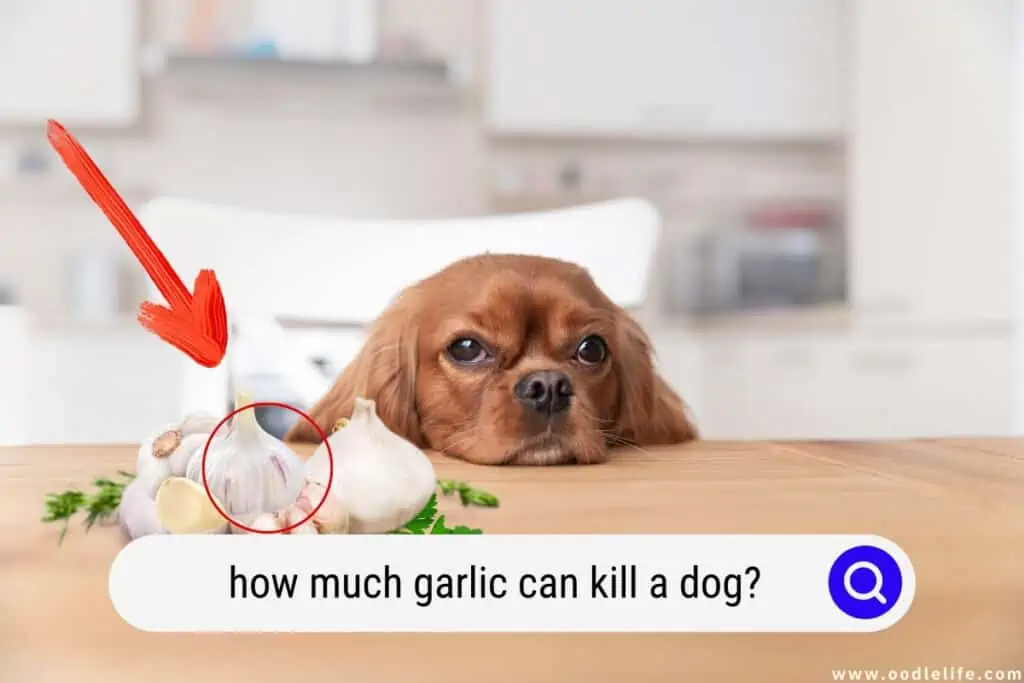
Lime Juice
There is often lime juice in salsa, and this is a problematic ingredient for dogs. That’s because lime juice contains a large amount of citric acid.
Does your dog have a sensitive tummy? He’s even more likely than other canines to have a negative reaction to lime juice.
Dogs don’t like the taste of lime juice on its own, but they won’t detect it in salsa and so they might try to eat the salsa anyway. Don’t let him.
As you can probably guess from the fact dogs shouldn’t have lime juice, they shouldn’t eat limes either. While limes will give your dog an upset stomach, there are some other fruits that you can give canines. Examples are strawberries and bananas.
You can even give them apple pieces if you take out all the seeds first.
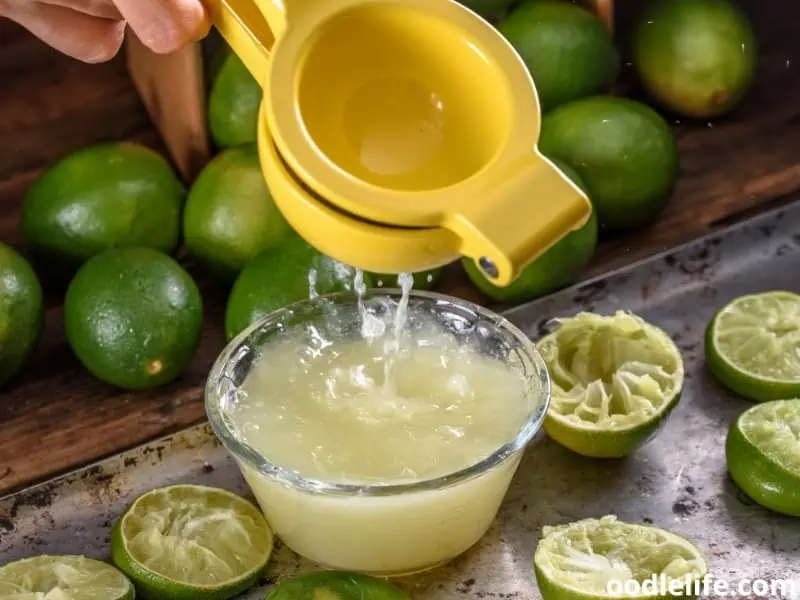
Jalapeno
Jalapeno usually causes painful and distressing gastrointestinal upset. Some potential consequences include:
- Diarrhea
- Bloating
- Abdominal pain
- Severe thirst caused by dehydration
Not only does spicy food cause digestive upset for your canine, it probably won’t even be tasty for them. Remember, dogs taste food differently than we do. Dogs have much fewer taste buds than we do.
The fact your dog might not taste spiciness means that they could go overboard with spicy food, causing severe consequences.
Unripe Tomato
Never give your dog unripe tomatoes. An unripe tomato is green, so avoid giving your pet a green tomato or any part of the plant that is green. If a dog eats a green tomato or a green part of a tomato, he can end up with tomatine poisoning.
There’s always a risk that there is some unripe tomato and green parts of the tomato plant in salsa. That’s one reason you should never give it to your pet.
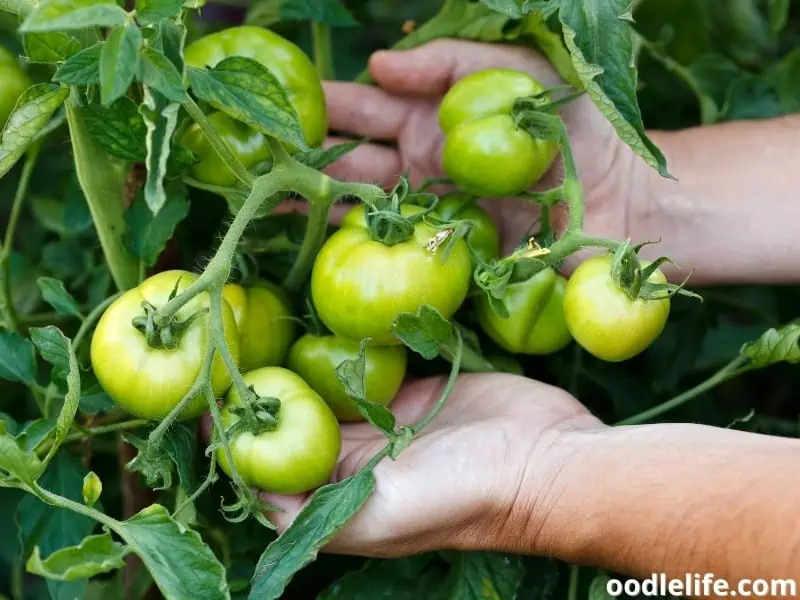
What Is Tomatine Poisoning?
Tomatine poisoning in dogs happens when your pet eats the green leaves on tomatoes or unripe tomatoes (tomatoes that are still green).
The more green tomato or tomato leaves your dog eats, the more risk there is of tomatine poisoning.
Symptoms of tomatine poisoning in dogs include:
- Weakness
- Ataxia
- Gastrointestinal upset
If your dog has only eaten a small amount of green tomato or leaves, he’ll probably just have an upset stomach. There’s reason to be more concerned if he’s eaten a large amount.
Contact a veterinarian right away if you think your dog has tomatine poisoning.

Dogs Can Eat Ripe Red Tomato
While unripe tomatoes are dangerous for dogs, you can give your dog ripe tomatoes. As long as you make sure the tomato is ripe, it offers extra nutrition to your dog. Just make sure there are no green leaves attached to the tomato.
Ripe red tomatoes offer several nutrients, such as folate, vitamin K, vitamin C, and potassium. They are also high in fiber.
Even though ripe tomatoes are safe for dogs, most of the other ingredients in salsa are dangerous for these animals.
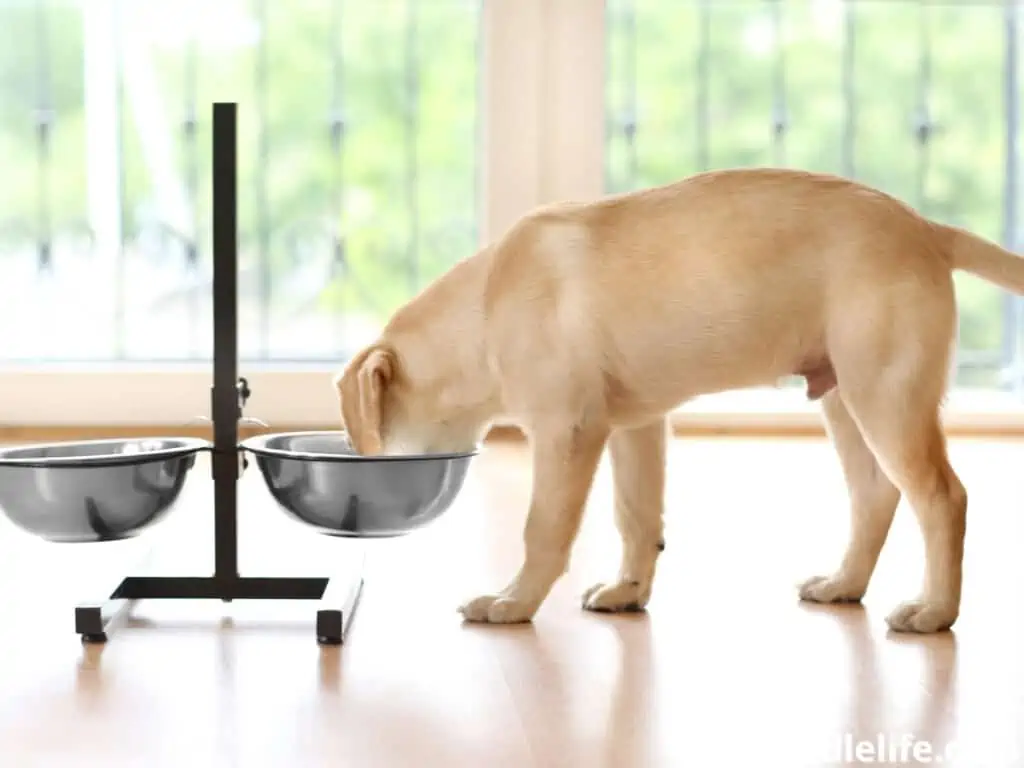
Cilantro Is Safe for Dogs
Cilantro is one of the few salsa ingredients that are okay for dogs. Not only is it safe, but it’s also even beneficial. This herb offers nutrients such as potassium, folate, vitamin A, vitamin C, and vitamin K.

Can Dogs Eat Tortilla Chips?
No, never let your dog have tortilla chips. They’re dangerous because your pet could choke on them.
Remember that tortilla chips have sharp edges. Dogs tend to eat quickly, and there’s a strong chance tortilla pieces will get stuck in Fido’s throat. No matter how much your pooch begs, never let them have tortilla chips.
Of course, the fact they’re a choking hazard is the primary reason you shouldn’t ever give your dog tortilla chips.
But there are other reasons they’re bad, too. They’re usually salted and they’re fried. Both those features are bad news for Fido.

What Should You Do if Your Dog Has Eaten Salsa?
This usually depends on how much salsa your dog has eaten. If it was just a tiny bit, he’ll probably have very mild symptoms. If he’s eaten a lot, you’ll have to keep a look-out for severe symptoms.
Contact a veterinarian right away for advice. You should do this right away if your dog has symptoms such as severe diarrhea, vomiting, and stomach pain. Don’t just assume Fido will be okay.
You need professional veterinary advice.
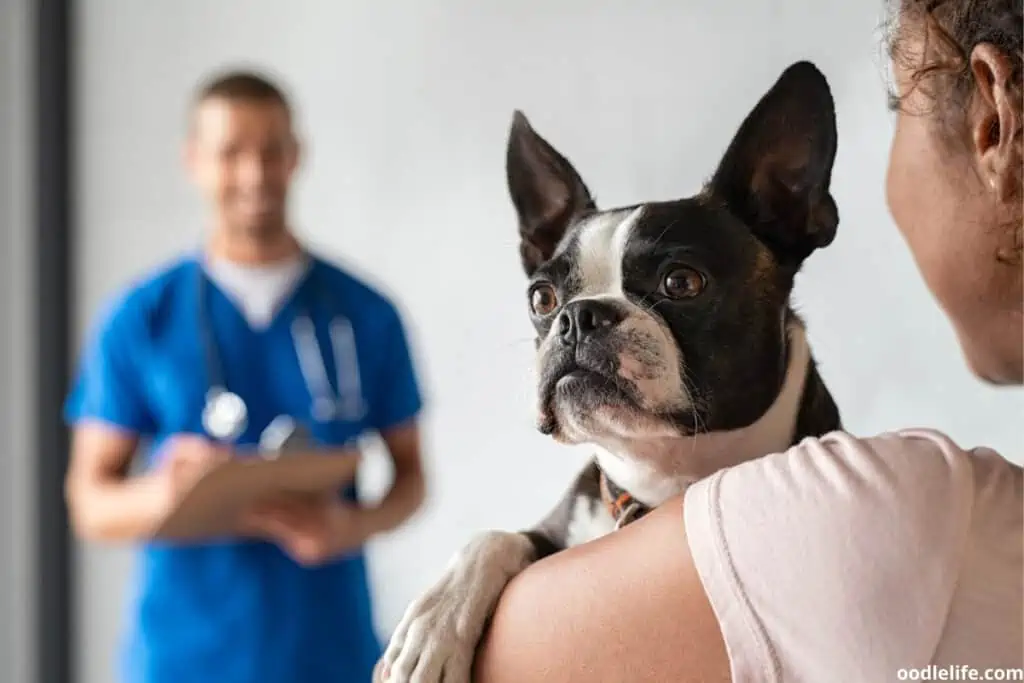
Conclusion: Salsa Is Hazardous for Your Dogs
To sum things up, salsa is dangerous for dogs. Never let your dogs eat any salsa, even just a little bit. Some of the most common salsa ingredients, such as onion and garlic, are a health threat to your canine companion.
